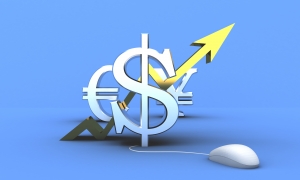 Want to make a customer angry? Offer them an upsell that is unrelated to their original purchase.
Want to make a customer angry? Offer them an upsell that is unrelated to their original purchase.
Want to make them angrier? Offer them that same upgrade again.
Want to make them so angry that they won’t buy your brand again and will tell other people not to buy it either? Offer them that same upgrade one more time.
Making one more sale and increasing per-customer sales numbers are important for most businesses. However, upsell relevancy is critical to not only closing the additional sale but making sure the customer will return, possibly become a loyal customers, and even better—become a vocal brand advocate.
The key is developing upsell programs that are highly relevant to consumers at the moment they’re making a purchase. If you have the right offers, you still need to invest in training your customer-facing employees so they understand how to offer the upsell in a way that maximizes sales without negatively affecting the brand and jeopardizing future business.
At what point does that extra sale become less important that the potential future relationship with the customer? You need to evaluate this for each upsell campaign and strike the right balance for each opportunity.
Customers might be willing to forget that a salesperson tried to sell them an upsell that was completely irrelevant to them—as long as the transaction can continue without further delays. However, offering the same irrelevant item a second time is certain to cause frustration and irritation which will negatively affect their perception of your brand. Offering that item a third time is nearly enough to have them walk away from the current transaction and is guaranteed to leave a negative impression of your brand that motivates them to tell other people not to buy your brand.
What level of brand and future sales risk are you willing to accept in order to squeeze in one more upsell today? For salespeople who are working on commissions, what do you think they would do in this situation? They have to meet a quota or at least sell enough to pay their bills. Do you think they’ll let a customer walk away with the hope that they’ll come back and buy from another salesperson in the future or do you think they’ll keep pushing to close the upsell today?
Policies, procedures, and training are critical to developing and implementing an upsell program that builds your brand and sales—both today and in the future.
Image: Svilen Milev
Susan Gunelius is the author of 10 marketing, social media, branding, copywriting, and technology books, and she is President & CEO of KeySplash Creative, Inc., a marketing communications company. She also owns Women on Business, an award-wining blog for business women. She is a featured columnist for Entrepreneur.com and Forbes.com, and her marketing-related articles have appeared on websites such as MSNBC.com, BusinessWeek.com, TodayShow.com, and more.
She has over 20 years of experience in the marketing field having spent the first decade of her career directing marketing programs for some of the largest companies in the world, including divisions of AT&T and HSBC. Today, her clients include large and small companies around the world and household brands like Citigroup, Cox Communications, Intuit, and more. Susan is frequently interviewed about marketing and branding by television, radio, print, and online media organizations, and she speaks about these topics at events around the world. You can connect with her on Twitter, Facebook, LinkedIn, or Google+.


